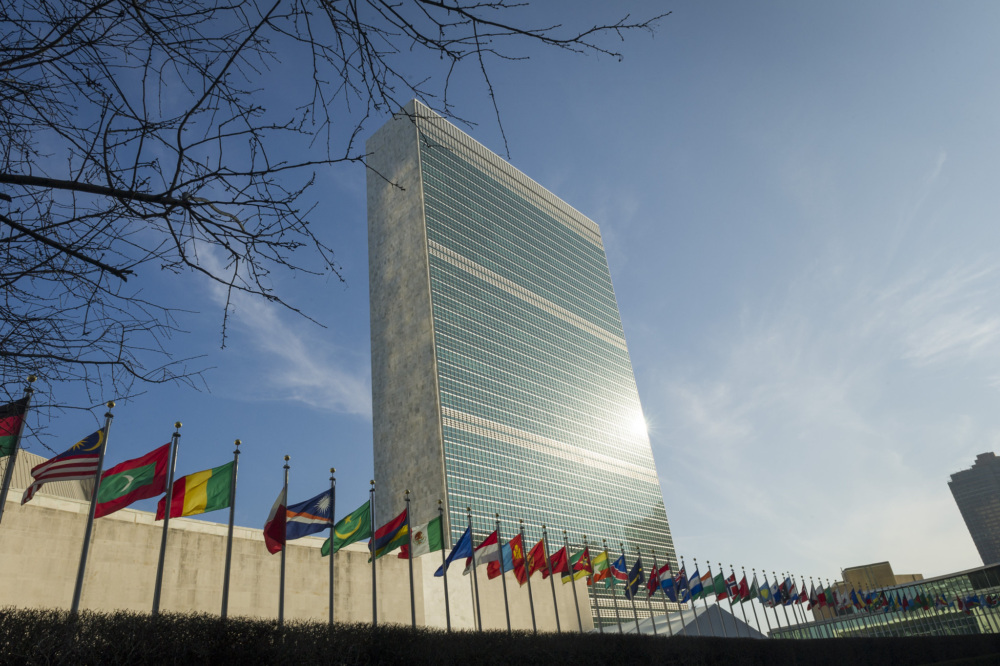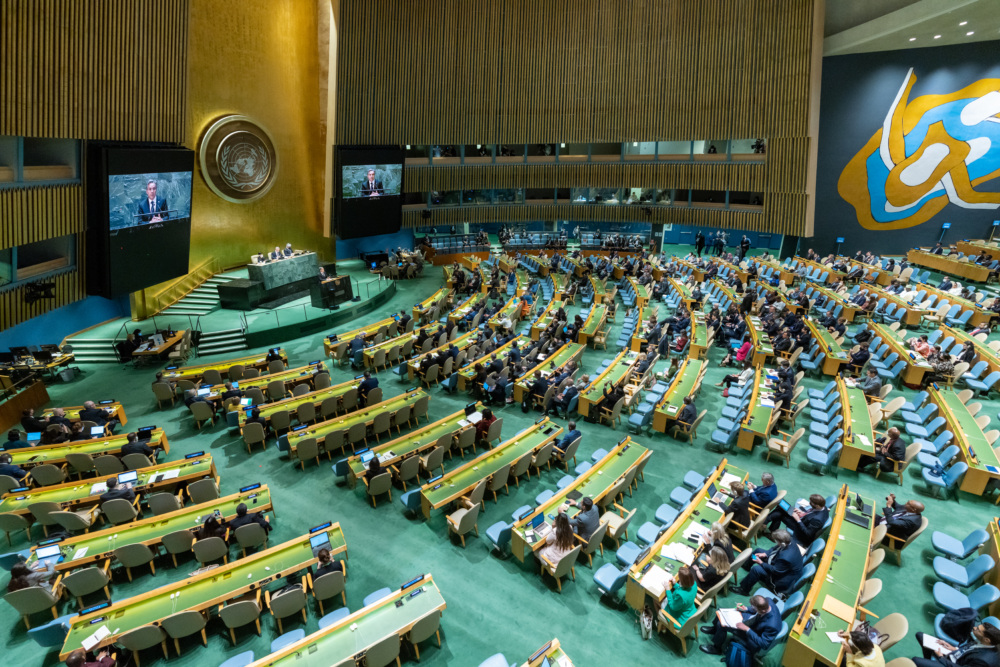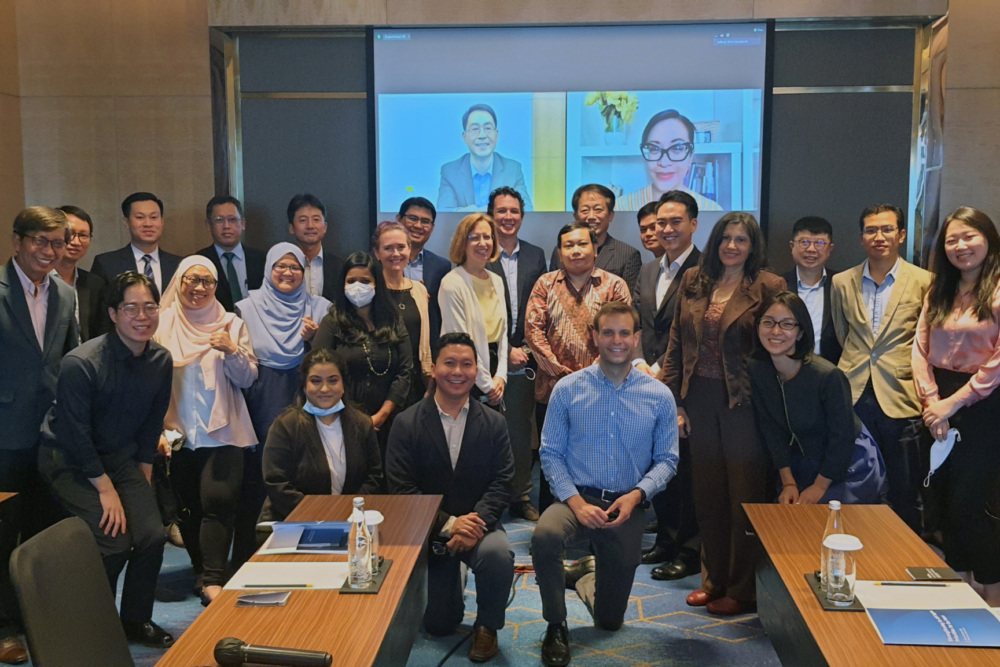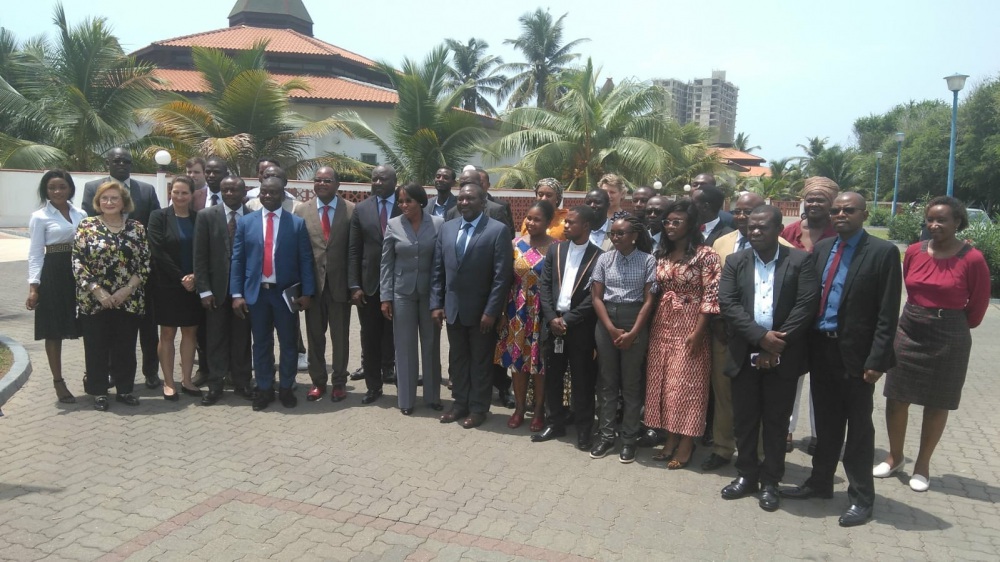
Christopher Colletta
Consultant
Atomic Pulse
In 2018, NTI launched the Global Enterprise to Strengthen Nonproliferation and Disarmament (GE), a Track 1.5 initiative that regularly convenes officials from more than 20 countries, along with several non-governmental experts. The objective of the GE is to strengthen the Nuclear Non-Proliferation Treaty (NPT) and promote a successful 10th NPT Review Conference (RevCon)—one that includes specific commitments to practical and achievable actions that will advance the NPT’s goals now and in the future. Over the course of several meetings from 2018-2021, GE participants focused on three main areas: nuclear risk reduction, transparency, and fissile material management. NTI’s recently published recommendations for a successful 10th NPT RevCon drew on these discussions to propose practical, achievable steps NPT states parties could take to strengthen the NPT and reach a successful outcome at the RevCon.
Over the course of four virtual briefings from December 7-13, 2021, NTI experts presented the recommendations to officials and experts from Latin America, Africa, and Asia. The briefings were convened by NTI partners in each region—the NPSGlobal Foundation in Argentina; the African Center for Science and International Security (AFRICIS) in Ghana; and the Asia Pacific Leadership Network (APLN) – and provided an opportunity for experts in each region to learn more about NTI’s GE project and to exchange views on disarmament and nonproliferation ahead of the RevCon now tentatively rescheduled for August, 2022 in New York.
The recommendations were generally well-received and stimulated considerable discussion, regarding in particular the relationship of risk reduction and transparency efforts to progress on nuclear disarmament and the importance placed on achieving a single, consensus final document at the RevCon.
Joint Voluntary Commitments, or “gift baskets”
One idea to emerge from the GE process as reflected in the NTI recommendations is the development of Joint Voluntary Commitments (JVCs). JVCs are commitments by individual or groups of States Parties to actions that go above and beyond any agreement that might require total consensus.
Some participants in the regional briefings opposed the idea of creating multiple separate documents, saying it would further fracture the process. They cited the 2010 RevCon in which States Parties produced many conflicting documents that proved difficult to manage. Others agreed, but noted that while drafting a final consensus document is an important and symbolic measure of success, it is preferable to have realistic action plans rather than a consensus document that may not bring results.
Risk reduction and transparency
In response to NTI’s recommendations on risk reduction and increased transparency, some participants argued that they imply nuclear risks will continue to be part of the international environment. Instead, they said focus should remain solely on the elimination of nuclear weapons. Others said risk reduction can act as a complementary step in any long-term effort to eliminate nuclear risks entirely. For example, transparency can contribute critical information to inform efforts on disarmament. After all, how can nuclear weapons be eliminated if the international community does not confidently know how many exist?
Increasing diversity in the NPT process
One recommendation that received wide support was to increase participation among younger generations in the NPT process. Drawing on language in the recent joint statement from the December 2-3 Paris P5 Conference about a potential P5 “Young Professionals Network,” participants in the regional briefings discussed creating youth networks from different regions that could inject new ideas into the RevCon process and help break impasses in negotiations. Several participants noted that young people in their countries seem very far removed from the problems posed by nuclear weapons and said that without public interest, policymakers will remain similarly disengaged.
Asian participants also cited the value of spreading knowledge of NPT issues to typically underrepresented communities. To counter public messaging that tends to glorify nuclear weapons, they suggested governments should promote public education on disarmament issues to help develop the public support necessary to spur action.
Above all, a commitment to success
With fresh memories of the 2015 RevCon failing to reach a consensus document, all parties said they want to avoid a similar outcome in 2022. Discussions around the newly entered into force Treaty on the Prohibition of Nuclear Weapons as well as the unresolved Middle East Weapons of Mass Destruction-Free Zone could impede success, but all parties agreed with the NTI recommendation that States Parties carry out private discussions in advance so as not to let such thorny issues derail progress during the RevCon itself.
The NTI recommendations can be found here, and illustrative Joint Voluntary Commitments can be found here.
Sign up for our newsletter to get the latest on nuclear and biological threats.
As officials prepare to meet in Vienna for the 2023 PrepCom, they should consider some of the key themes that have emerged from NTI’s Global Enterprise to Strengthen Non-Proliferation and Disarmament.
NTI and the Asia Pacific Leadership Network co-hosted a workshop in Jakarta, Indonesia on how the Asia-Pacific region can promote success at the 10th NPT Review Conference.
NTI in Africa: Regional Workshop in Ghana Aims to Strengthen Nuclear Non-Proliferation Treaty



